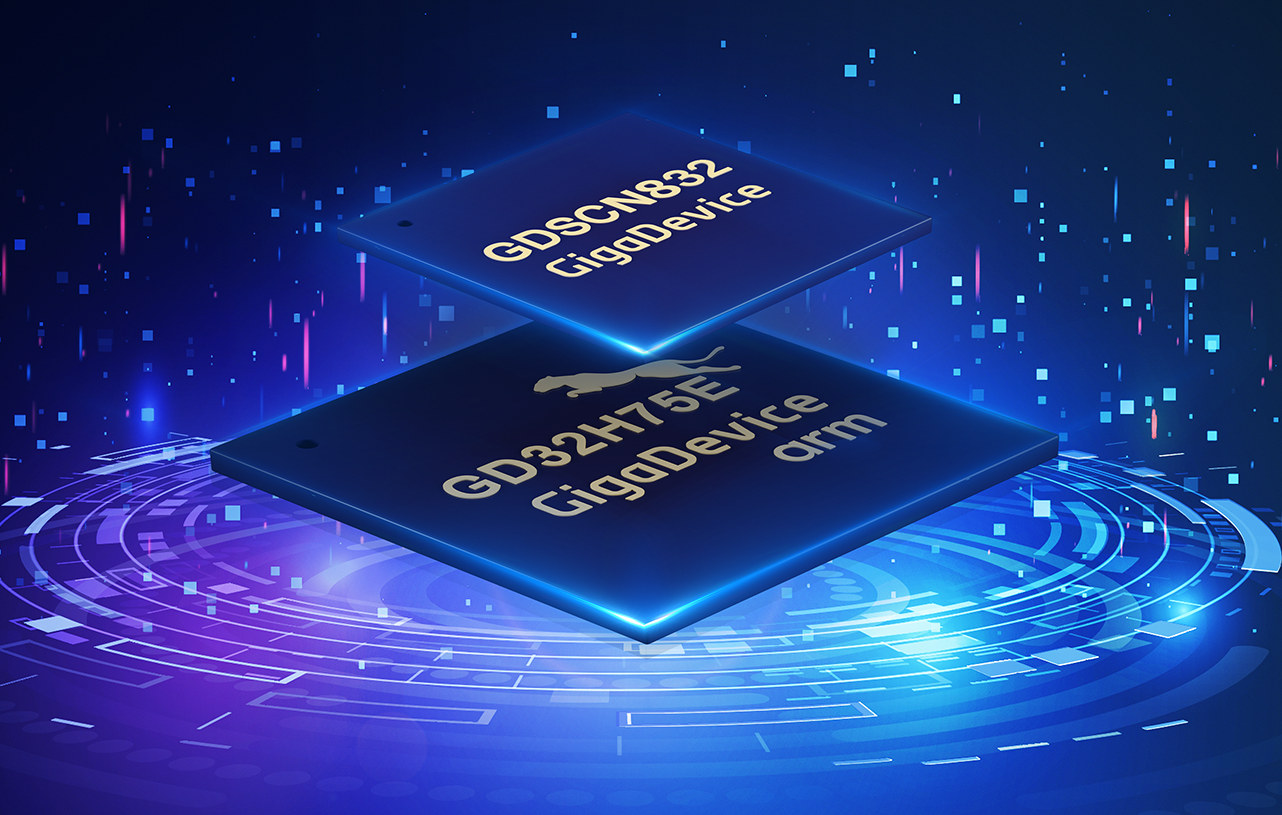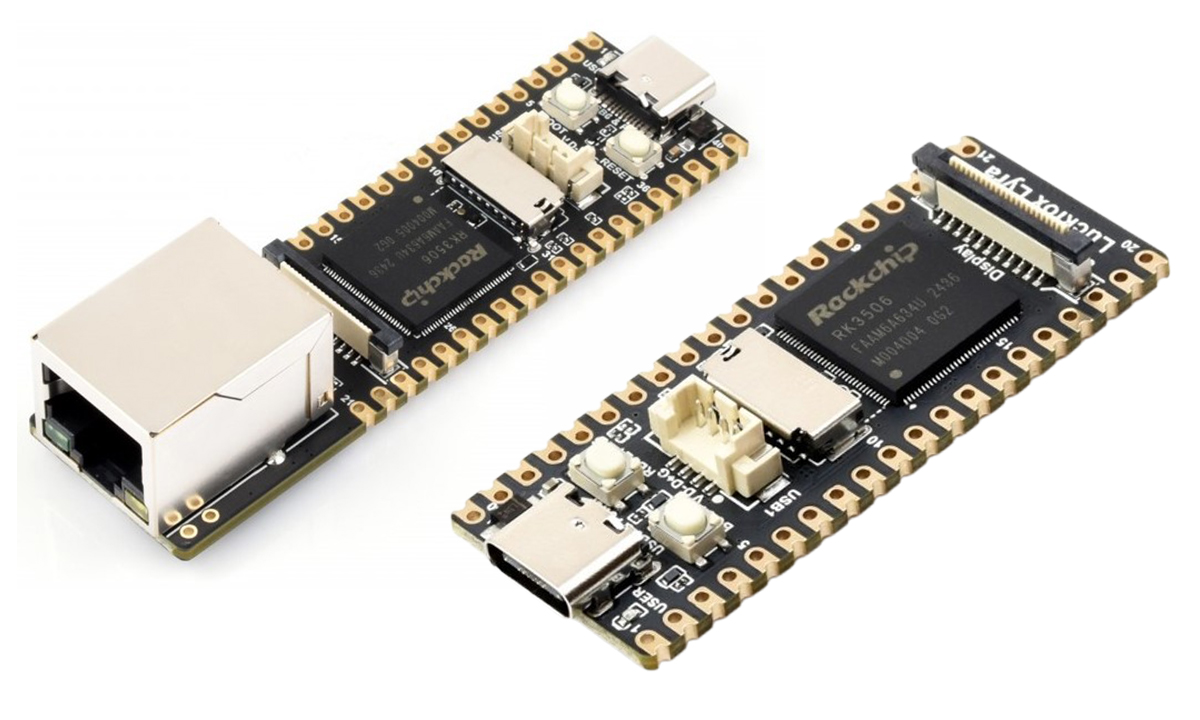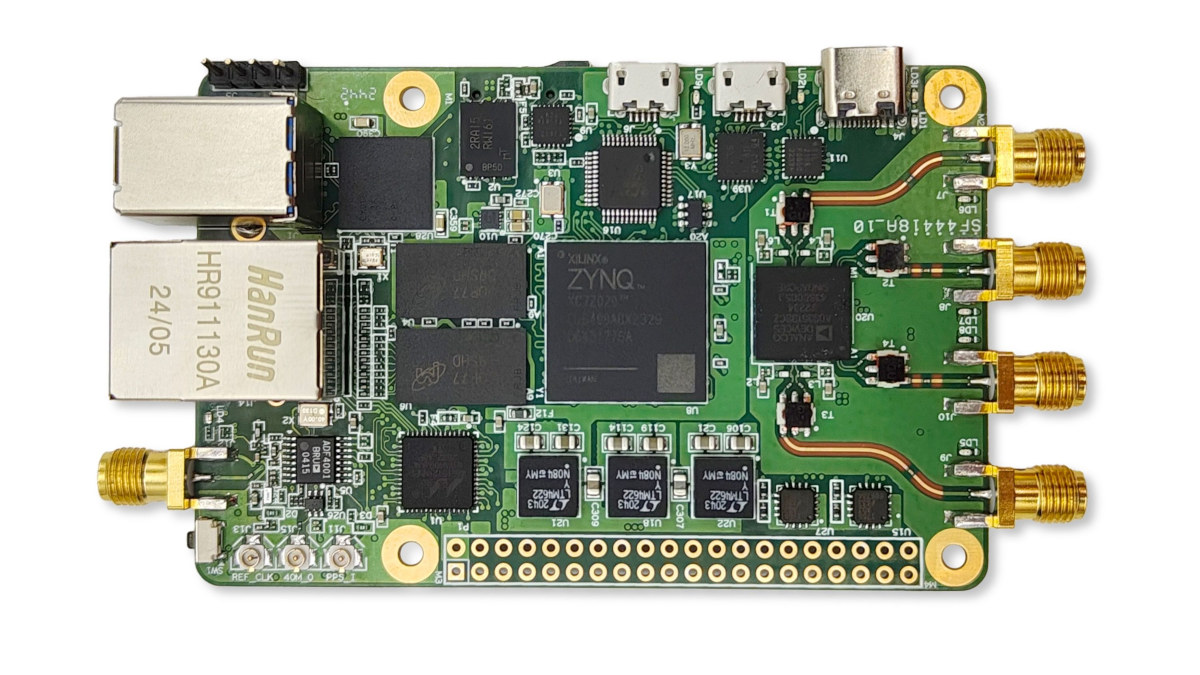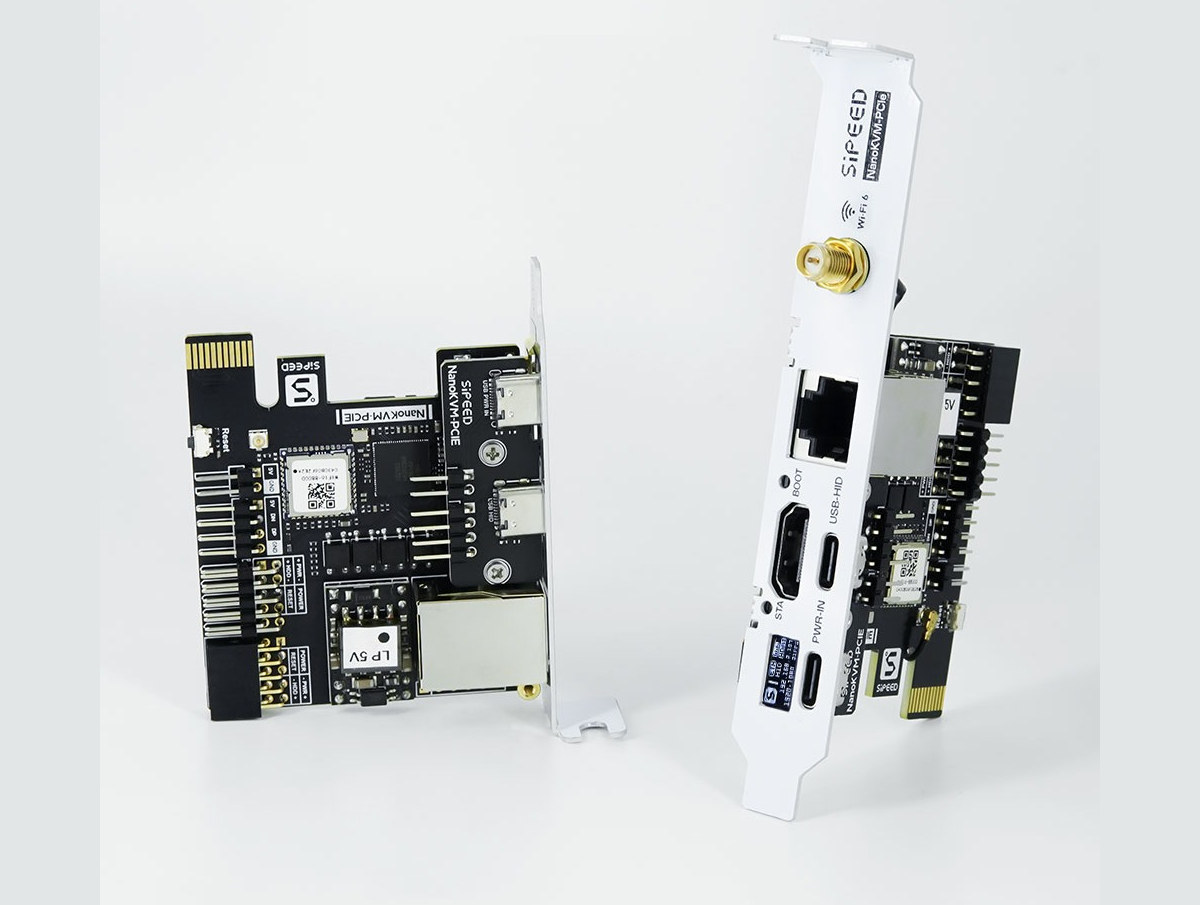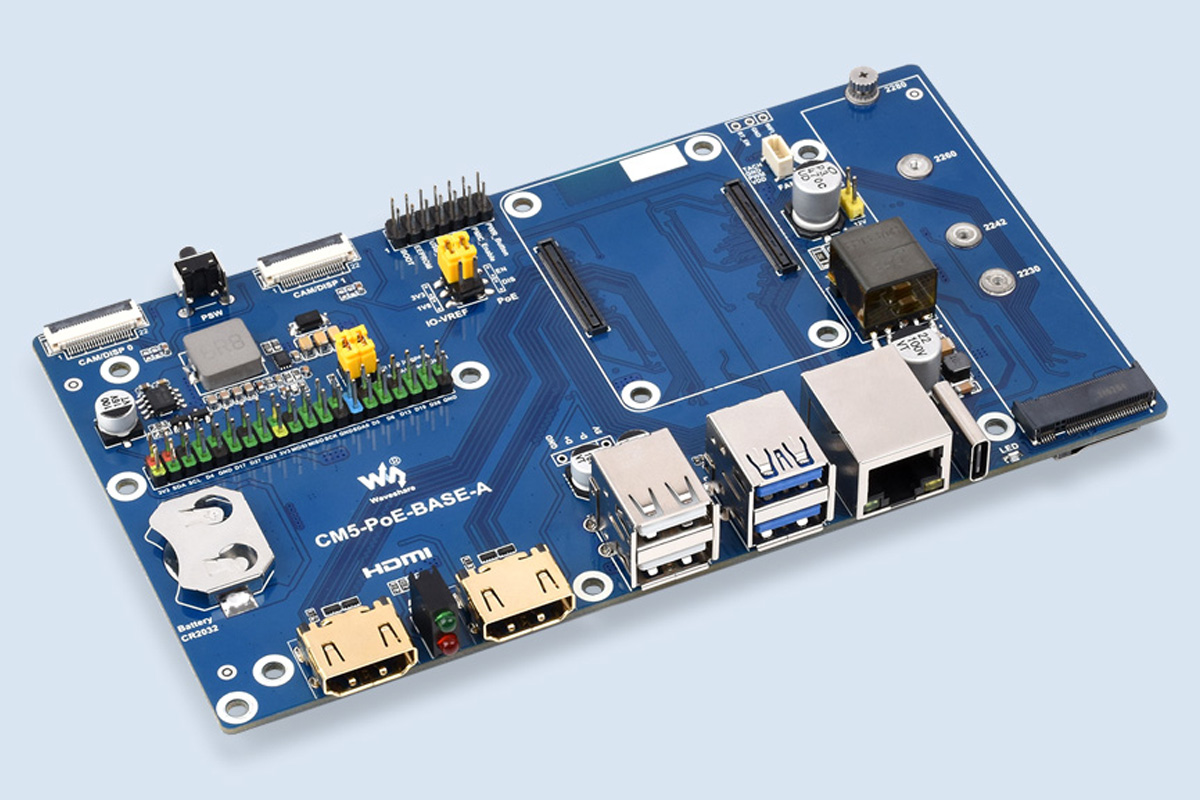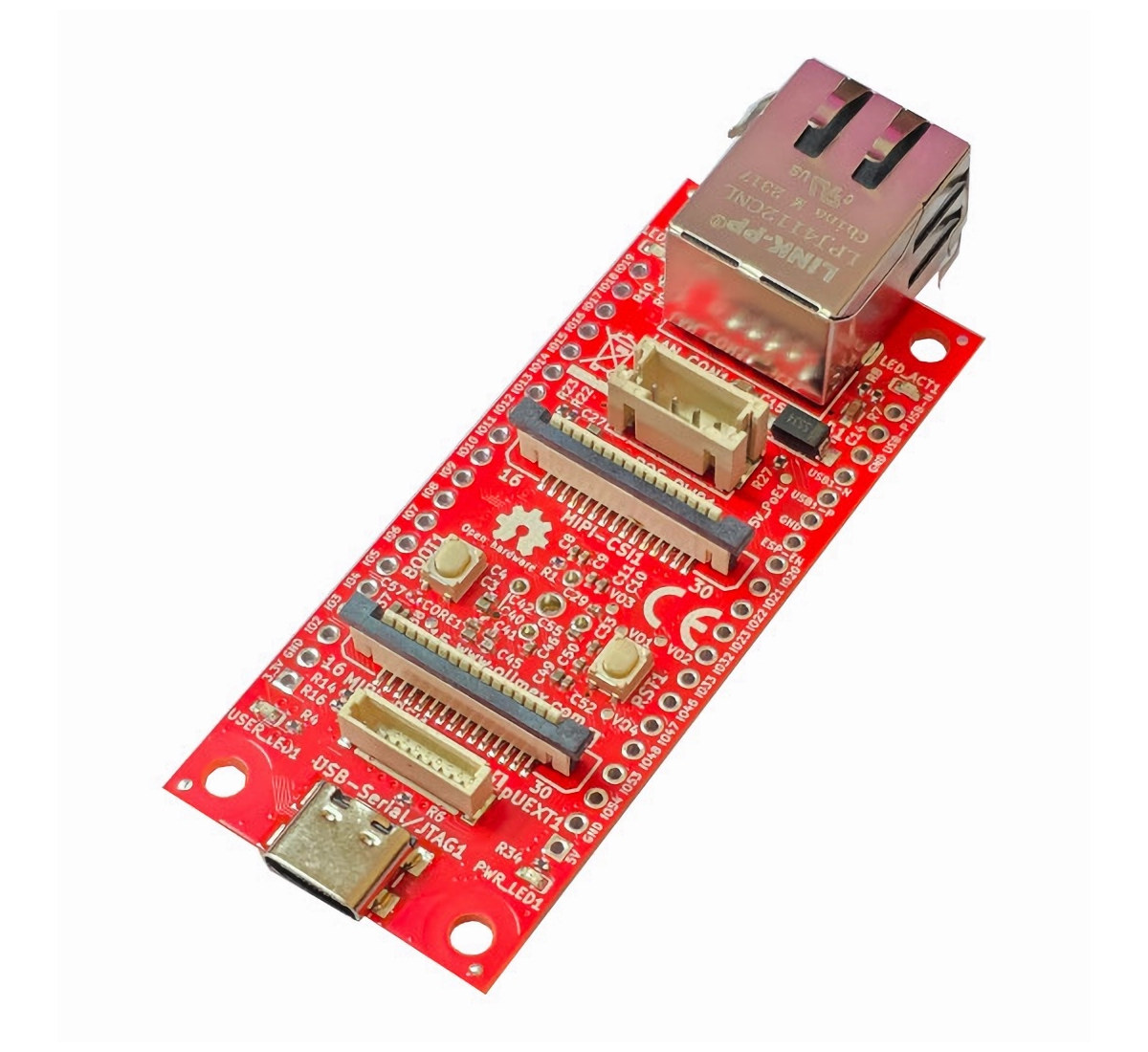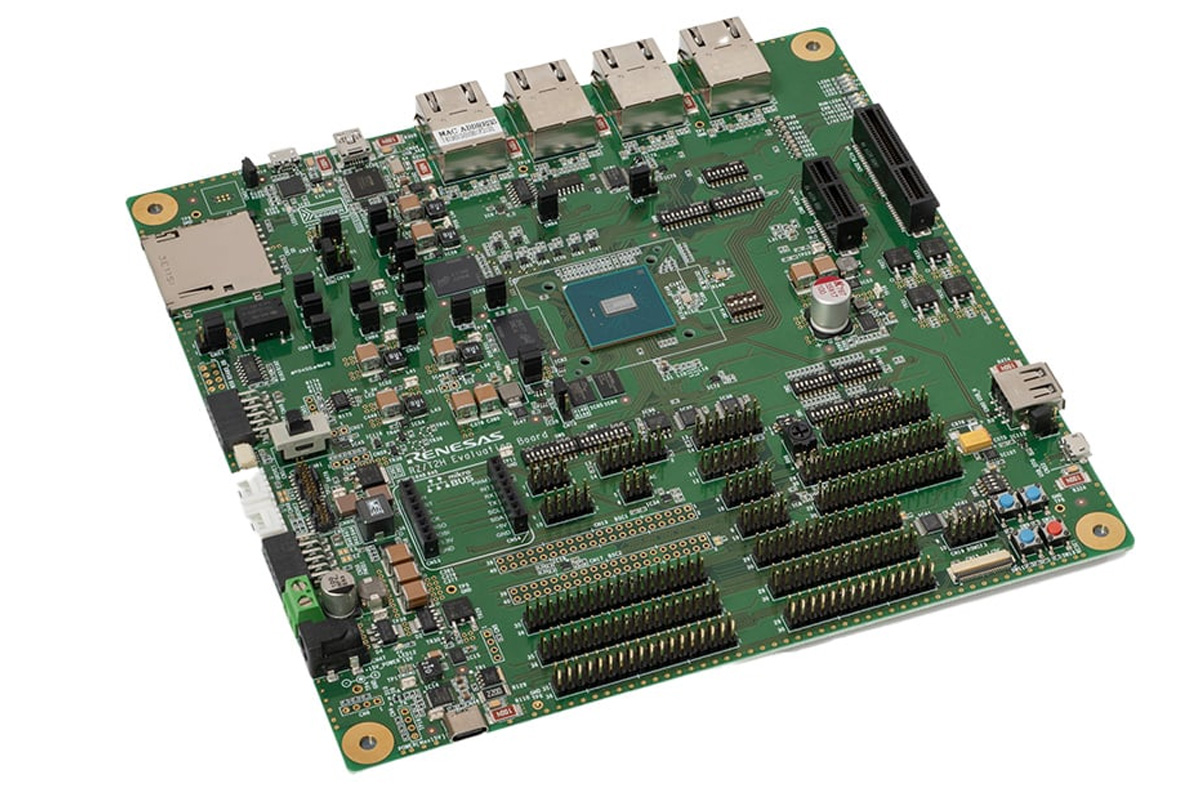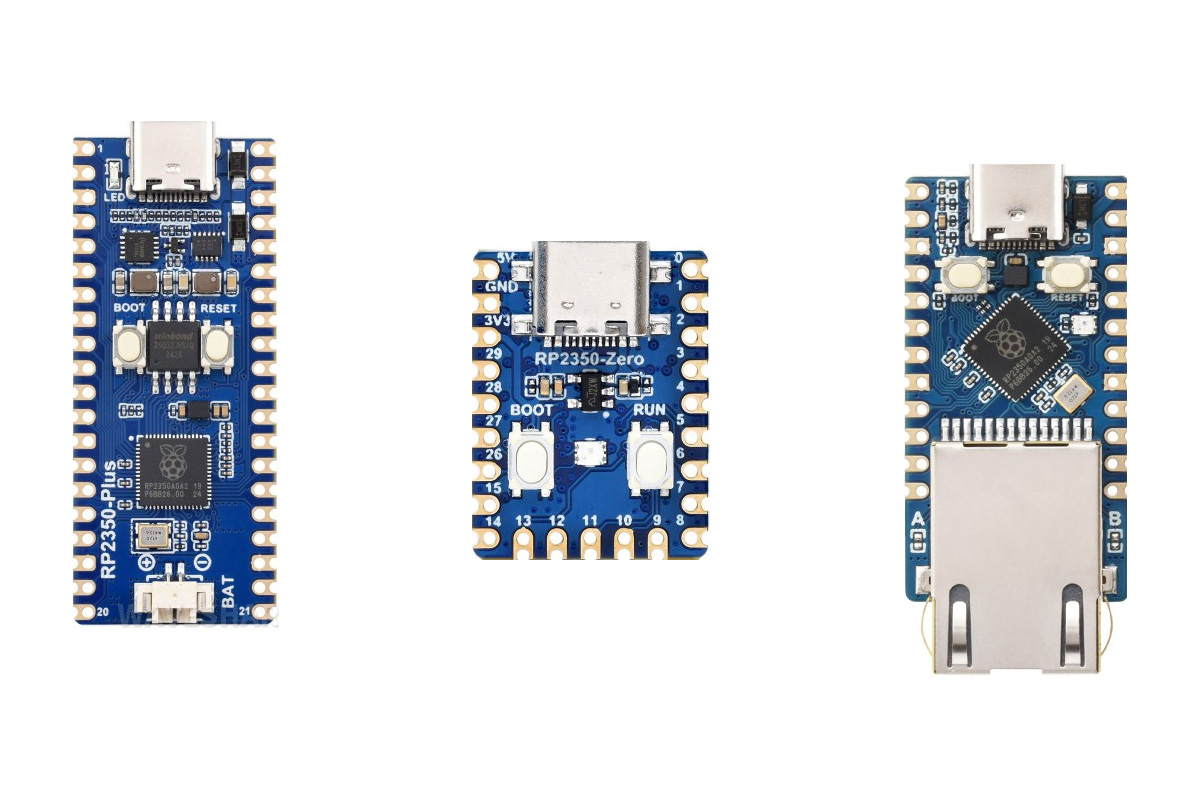GigaDevice has launched its first EtherCAT SubDevice Controller with the GDSCN832 along with the 600 MHz GD32H75E Arm Cortex-M7 microcontroller series which incorporates the EtherCAT SubDevice Controller. The GH32G57E microcontroller also comes with 1024KB SRAM, 3840 KB flash with protection, up to two Ethernet PHY, USB Full Speed and High-Speed interfaces, and a range of peripherals and timers. Both products are made for the industrial automation market and are suitable for servo control, variable frequency drives, industrial PLCs, and communication modules. Gigadevice GD32H75E specifications: CPU – Arm Cortex-M7 32-bit processor core operating at 600 MHz frequency Memory and Storage 512KB AXI SRAM 512KB RAM shared (ITCM/DTCM/AXI) memory 3840 KB on-chip Flash memory with security protection to prevent illegal code/data access External memory controller (EXMC) for SRAM, PSRAM, ROM, and NOR Flash Accelerator – Filter arithmetic accelerator (FAC) and Trigonometric Math Unit (TMU) Industrial communication 2x Ethernet PHYs (YMJ6 parts only) […]
Luckfox Lyra boards feature Rockchip RK3506G2 triple-core SoC, display interface, optional Ethernet port
The Luckfox Lyra boards feature a Rockchip RK3506G2 triple-core Arm Cortex-A7 SoC with one Cortex-M0 real-time core, 128MB on-chip DDR3, a MIPI DSI display interface, and built on a 22nm process. Three versions are available with the Luckfox Lyra, Lyra B (with 256MB flash), and Luckfox Lyra Plus offering similar features, but the longer Plus model also adds a 10/100Mbps Ethernet RJ45 connector besides having 256MB SPI NAND flash. These are Luckfox’s first boards featuring the RK3506G2 processor, offering Ethernet connectivity and a display interface. But it’s not quite the first Arm Linux board from the company with Ethernet and a display interface, and we covered the Luckfox Pico Ultra micro development board all based on a Rockchip RV1106G3 SoC earlier this year. The company also introduced the similar-looking LuckFox Pico Pro and Pico Max boards powered by an RV1006G2 SoC in February, but instead of a display interface, they […]
SignalSDR Pro is a high-performance software-defined radio (SDR) in Raspberry Pi form factor (Crowdfunding)
The SignalSDR Pro is a Raspberry Pi-sized SDR that brings a credit-card-sized twist to software-defined radios (SDRs). It is a compact, streamlined device suitable for tasks ranging “from signal processing and spectrum analysis to communication systems and beyond.” The SignalSDR Pro builds on the Analog Devices AD9361 radio transceiver and the AMD Zync 7020 SoC into a credit-card format reminiscent of Raspberry Pi single-board computers. The Raspberry Pi-sized SDR also features a 40-pin GPIO header for expansion with other hardware components and added functionality. The device offers a 70MHz – 6GHz tuning range, 12-bit sample rate, 61.44MHz RF bandwidth, and two full-duplex TX/RX channels via four I-PEX antenna connectors. It is also capable of emulating other SDR hardware such as the ADALM-PLUTO and USRP B210, making it easier to integrate into pre-existing workflows. The SignalSDR Pro is a mid-range alternative to entry-level SDR options such as the AntSDR E200, KrakenSDR, […]
Sipeed NanoKVM-PCIe is an inexpensive KVM over IP solution with optional WiFi 6 and PoE support
Sipeed NanoKVM-PCIe is a variation of the NanoKVM KVM-over-IP solution introduced last summer, but instead of being a tiny Cube with USB-C power, the new model can be powered through the PCIe slot from the host (as well as USB-C) and adds optional WiFi 6 and PoE functionality. While it’s not based on the LicheePi Nano SBC like the NanoKVM, it relies on the same SOPHGO SG2002 RISC-V/Arm/8051 SoC and offers many of the same ports in a different form factor including 10/100Mbps Ethernet, two USB-C ports one for HID, the other for power, a small OLED information display, and an HDMI input port supporting up to 1080p60. NanoKVM-PCIe specifications: SoC – SOPHGO SG2002 Main core – 1GHz 64-bit RISC-V C906 or Arm Cortex-A53 core (the latter is likely not used here) Minor core – 700MHz 64-bit RISC-V C906 core Low-power core – 25 to 300MHz 8051 MCU core VPU […]
Raspberry Pi CM5 gets carrier boards with built-in PoE/PoE+
Waveshare has recently launched CM5-PoE-BASE-A, a compact development and evaluation board that supports all variants of the Raspberry Pi Compute Module 5 (CM5). While searching for more information about this product I came across Modulo5 IO PoE+, another development board from Pineboards also designed for the RPi CM5 module. Pineboards’ Modulo5 IO PoE+ offers a premium UK-manufactured PoE+ module capable of delivering 25W continuous power, with support for NVMe storage and compatibility with the Raspberry Pi 5 Active Cooler. On the other hand, Waveshare’s CM5 PoE Base Board features a Gigabit Ethernet port featuring 802.3af/at PoE compliance, peripheral options include dual HDMI, USB 3.2 ports, and NVMe support. Both boards feature specifications similar to the official Raspberry Pi CM5 IO board with the main difference being built-in PoE/PoE+ support, along with some cosmetic changes. While the Raspberry Pi CM5 IO board does come with a 4-pin PoE connector, it requires […]
Olimex ESP32-P4-DevKit offers Ethernet, USB JTAG, MIPI DSI and CSI interfaces
Olimex ESP32-P4-DevKit is a compact development board powered by a 400 MHz ESP32-P4 general-purpose dual-core RISC-V microcontroller with a 10/100Mbps Ethernet RJ45 connector, a USB-C Serial/JTAG connector, MIPI DSI/CSI connectors for a display and a camera, GPIO headers and UEXT connector, Boot and Reset buttons, and a few LEDs. In some ways, it offers similar to the Waveshare ESP32-P4-NANO board we covered last month, but in a different form factor, and it lacks WiFi 6 connectivity and a USB Type-A connector. It’s also much more compact and cheaper than the official ESP32-P4-Function-EV-Board launched this summer, but again, with fewer features. Olimex ESP32-P4-Devkit: Microcontroller – ESP32-P4 MCU Dual-core RISC-V microcontroller @ 400 MHz with AI instructions extension and single-precision FPU Single-RISC-V LP (Low-power) MCU core @ up to 40 MHz GPU – 2D Pixel Processing Accelerator (PPA) VPU – H.264 and JPEG codecs support Memory – 768 KB HP L2MEM, 32 […]
Renesas RZ/T2H Cortex-A55/R52 industrial MPU and Dev Board support EtherCAT, PROFINET, and TSN
Renesas RZ/T2H industrial MPU is the most powerful member of its RZ/T2 series of real-time microprocessors. The MPU features four Arm Cortex-A55 CPUs for application tasks and two Cortex-R52 CPUs for real-time control. It supports 9-axis motor control with 3-phase PWM timers, delta-sigma interfaces, and encoder interfaces. It also supports Industrial Ethernet protocols like EtherCAT, PROFINET, and TSN. These features make it ideal for industrial applications such as industrial robots, PLCs, motion controllers, and CNC machines. Renesas launched the RZ/T2L single-core Arm Cortex-R52 MPU just last year, and before that, in 2022, they launched the RZ/T2M dual Arm Cortex-R52 MPU. The RZ/T2L was just a cost-down version of RZ/T2M with an EtherCAT controller, compared to those old controllers the latest RZ/T2H supports 9-axis motor control and compatibility with various industrial Ethernet protocols. Renesas RZ/T2H specifications: CPU 4x Arm Cortex-A55 (64-bit) clocked at up to 1.2GHz with 32KB L1 I/D cache, 1MB L3 cache 2x […]
Waveshare launches three RP2350 USB-C development boards with castellated design, battery support, built-in Ethernet port
Waveshare has announced four new USB-C and USB-A development boards based on the Raspberry Pi RP2350 MCU: the Waveshare RP2350-Plus dev board, the Waveshare RP2350-Zero Mini dev board, the Waveshare RP2350-ETH Mini dev board, and the Waveshare RP2350-GEEK USB dev board. The RP2350-Plus is a low-cost, high-performance Pico-like development board with the RP2350 MCU, various I/O, battery support, USB Type-C, and compatibility with Raspberry Pi Pico modules. The RP2350-Zero Mini is another compact dev board with castellated pins, 29 GPIOs, USB Type-C, PIO, and versatile peripheral support, ideal for IoT, robotics, and embedded systems. The RP2350-ETH Mini dev board has Ethernet support and various GPIO functionalities, making it ideal for IoT development. Like any other RP2350 board, the Waveshare RP2350 boards support C/C++ and MicroPython SDKs with drag-and-drop firmware flashing via USB mass storage. Waveshare RP2350-Plus development board The Waveshare RP2350-Plus is a low-cost development board that comes in a […]


